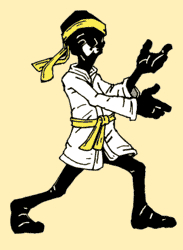 On this day 111 years ago, a large force of anti-Western rebels moved into Peking and started burning churches and houses belonging to foreigners. During the preceding decades, Western powers had forced China to accept foreign control over much of the country’s economic affairs, resulting in terms of trade that were unfavourable to China and causing widespread anti-Western sentiment.
On this day 111 years ago, a large force of anti-Western rebels moved into Peking and started burning churches and houses belonging to foreigners. During the preceding decades, Western powers had forced China to accept foreign control over much of the country’s economic affairs, resulting in terms of trade that were unfavourable to China and causing widespread anti-Western sentiment.
The rebels, who practised a style of martial arts, were known as the Society of Righteous and Harmonious Fists, and were referred to by the English as Boxers, so that the uprising was called the Boxer Rebellion. The Empress Dowager Cixi, who had seized power in 1898, supported the Boxers. The German envoy was killed on 20 June 1900, and on the following day Empress Dowager Cixi declared war against all foreign powers.
An eight-nation alliance between Austria-Hungary, Britain, Germany, France, Italy, Japan, Russia and the United States responded by invading Peking on 14 August 1900. The Boxer Protocol signed on 7 September the following year, requiring China to pay a very large sum in indemnities over a period of 39 years. However, over the course of the next quarter century nearly all of the recipient countries of the indemnity agreed that China could spend their share on selected infrastructure development projects in China.